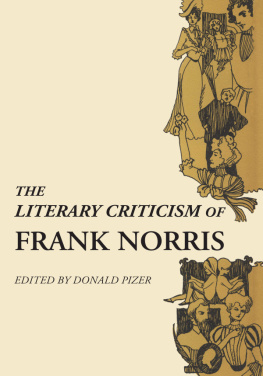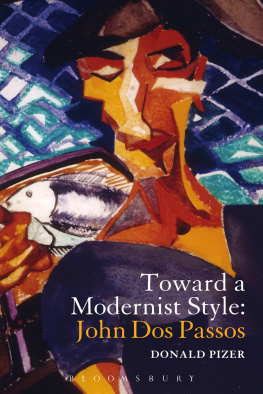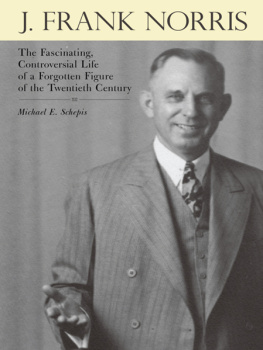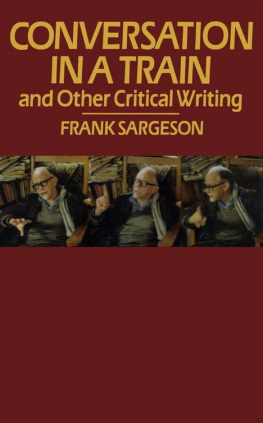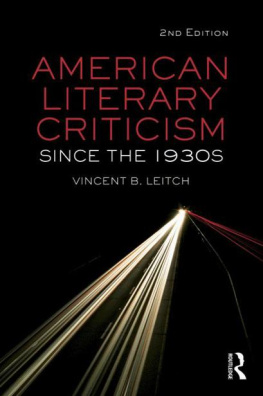Since the Wave had a small staff, a substantial portion of Norris work appeared anonymously or pseudonymously to disguise the fact that much of each issue was prepared by two or three writers. Of Norris twenty-two contributions of literary criticism to the Wave, eight were neither signed nor initialed by him. Two of these eight are signed Justin Sturgis, a pseudonym which Norris adopted early in 1897 for light material or for items in issues containing several of his contributions. (The checklist at the end of this volume indicates the signature for each of Norris contributions to the Wave.) Finally, two of Norris early contributions to Worlds Work are anonymous, but have also long been attributed to him.
The text of the present volume, with one major group of exceptions, is that of the original publication of each item. Norris had no hand in the text of The Responsibilities of the Novelist, which was apparently prepared in the Doubleday, Page offices from clippings. Although the Responsibilities text is in general accurate, it varies considerably from original publication in spelling (Doubleday followed English convention) and punctuation. In addition, the Responsibilities text contains occasional changes in wording. Since the original publication of each item is that closest to Norris, I have used it, even though this has resulted in some inconsistency in spelling and punctuation. The one exception to this procedure Since I and several other researchers have failed to locate these essays, the seven which were published in Responsibilities are here reprinted from that text. I have, however, Americanized their spelling.
I have silently corrected obvious typographical errors. I have also standardized throughout the punctuation of titles and numbers, and the spelling and punctuation of foreign names, words, and expressions, since in these matters there is little to be gained by reproducing the vagaries of journalistic usage.
Walker questioned Cosgrave in 1930 about the use of Justin Sturgis, but Cosgrave could not remember whether Norris shared the pseudonym or used it exclusively (FWC). Joseph M. Backus, in Gelett Burgess: A Biography of the Man Who Wrote The Purple Cow (Ph.D. dissertation, University of California, 1961), states that from mid-March to mid-May, 1897, Burgess replaced Norris as subeditor of the Wave and that the pieces in the Wave during this period which are signed Justin Sturgis are by Burgess. (Burgess himself left for New York in May, 1897.) Since the only signed contribution by Norris to the magazine during this period was the article A Lags Release, XVI (March 27, 1897), 4, which could have been written earlier, Backus is probably right. However, all other pieces in the Wave signed Justin Sturgis seem definitely to be by Norris (including the two republished in this book), and it is significant that the pseudonym was not used after Norris left the journal in early 1898.
Walker noted Zola as a Romantic Writer and The English Courses of the University of California. Lohf and Sheehy accept these as well as Stephen Cranes Stories of Life in the Slums and The Decline of the Magazine Short Story. Lundy adds Zolas Rome and The Modern Short Story.
Recalled by Charles in an interview with Franklin Walker, July 8, 1931 (FWC). Isobel Strong was Robert Louis Stevensons daughter-in-law. The Norrises had met the Stevenson clan in New York and had later negotiated with Mrs. Stevenson for the purchase of a cabin near San Francisco. Jeannette spent considerable time with Mrs. Strong after Norris death.
Basic biographical information on Norris is contained in Franklin D. Walkers Frank Norris: A Biography (Garden City, New York: Doubleday, Doran & Company, 1932) and in his edition of The Letters of Frank Norris (San Francisco: Book Club of California, 1956). The best and most recent bibliography is Frank Norris: A Bibliography (Los Gatos, California: Talisman Press, 1959) by Kenneth A. Lohf and Eugene P. Sheehy. The most useful critical treatments are still those by Walter F. Taylor in his The Economic Novel in America (Chapel Hill, North Carolina: The University of North Carolina Press, 1937) and Ernest Marchand, Frank Norris: A Study (Stanford: Stanford University Press, 1942). Also helpful are Lars hnebrink, The Beginnings of Naturalism in American Fiction (Cambridge, Massachusetts: Harvard University Press, 1950) and the series of articles by Charles C. Walcutt, summarized in his American Literary Naturalism, A Divided Stream (Minneapolis: University of Minnesota Press, 1956). The best of the unpublished dissertations on Norris are by Robert D. Lundy, The Making of McTeague and The Octopus (University of California, 1956) and William B. Dillingham, Themes and Literary Techniques in the Fiction of Frank Norris (University of Pennsylvania, 1961). Most surveys of American fiction and criticism contain discussions of Norris critical ideas (see the Lohf and Sheehy bibliography).
Articles which deal primarily with Norris criticism are: H. Willard Reninger, Norris Explains The Octopus: A Correlation of His Theory and Practice, American Literature, XII (May, 1940), 218227; Malcolm Cowley, Not Men: A Natural History of American Naturalism, Kenyon Review, IX (Summer, 1947), 414435; Joseph J. Kwiat, Frank Norris: The Novelist as Social Critic and Literary Theorist, Die Neueren Sprachen, 2nd Ser., III (1954), 385392; Charles G. Hoffman, Norris and the Responsibility of the Novelist, South Atlantic Quarterly, LIV (October, 1955), 508515; and George W. Johnson, Frank Norris and Romance, American Literature, XXXIII (March, 1961), 5263.
BIBLIOGRAPHICAL NOTE
and
CHECKLIST OF NORRIS LITERARY CRITICISM
Norris believed that the writer should be educated and trained in the techniques of fiction and in the practice of an originality based upon life. But he saw, both in his own education and in contemporary conceptions of the artist, that there were major forces which opposed the proper training of the novelist. His articles on the preparation of the novelist, therefore, often consider that preparation primarily in terms of the handicaps facing it.
He particularly relied upon two of his own experiences as examples of the obstacles placed in the way of the correct training of the writer. One such obstacle was American business civilization, whichthough Norris applauded it for other reasonshad no place in its values for the selection and encouragement of youthful artistic talent. Norris himself had felt this lack, for his father, a wealthy self-made businessman, had assumed that his son would pursue a similar career. It was only the intervention of Norris artistically minded mother which permitted him to attend art schools and then to undertake the literary course at the University of California.
But once in college, Norris found yet another obstaclethe prescribed themes and prose analysis of the conventional composition course. Later, he used his experiences at California and Harvard as examples of the false and the correct ways to encourage literary ability. The considerable basis for this contrast is apparent from a series of articles in the Dial during 1894, in which various university English departments described their programs. Whereas Charles Mills Gayley pointed out that at California academic scholarship does not look with favor upon the attempt to stimulate or foster creative production, Barrett Wendell gave much attention to the elective writing courses at Harvard, and noted that in them little importance is attached to theoretical knowledge of rhetoric as distinguished from constant practice in writing under the most minute practical criticism. at the other he could write

